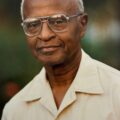Many people have asked me why, despite their legislative majority, the opposition in Guyana have, since 2001, allowed the PPP ant its Executive Government to out-maneuver them. They are of course referring to the latest confusion surrounding the AFC-sponsored no-confidence vote. We now discover that it is the Executive Government and not the Speaker which has the power to convene parliament.
Many people have asked me why, despite their legislative majority, the opposition in Guyana have, since 2001, allowed the PPP ant its Executive Government to out-maneuver them. They are of course referring to the latest confusion surrounding the AFC-sponsored no-confidence vote. We now discover that it is the Executive Government and not the Speaker which has the power to convene parliament. Predictably, the former is deliberately delaying the resumption after the latest recess. While the AFC is eager for the resumption, the APNU seems less enthusiastic. But even if parliament is convened in the next few days, it is not clear that the motion would proceed or succeed.
The reason? Despite the APNU’s assurances, it is obvious that they are not on the same page with the AFC. There is a basic rule of Joint-Opposition politics—if you have a common adversary then you have to have a common strategy to confront that adversary. It is clear that the APNU and AFC do not have a common strategy—they never had one. It is difficult to effectively challenge a common adversary when the relationship of the two opposition groups is itself adversarial.
The no-confidence motion is the AFC’s initiative; it is not an AFC-APNU initiative. That was a basic error that was bound to come back to haunt the AFC and to some extent the APNU. Both entities needed to sit down and discuss such an important initiative. If you are going for a no-confidence vote, both parties have to be sure that they are ready for elections and more importantly that at least one of them or a pre-election coalition of the two could win a plurality or a majority of the popular vote. Anything short of that amounts to mere political posturing.
I make bold to say that short of some swift consensus on the way forward by the APNU and the AFC, the PPP will survive this no-confidence vote. Once the AFC acted unilaterally, it left the APNU with no alternative but to come up with its own counter-initiative. The APNU could not allow the AFC to drag it into an early election that it was not ready for or did not think was tactically warranted.
The AFC is reaping the rewards of its own rhetoric (or is it principle?) of not working with either of the two older parties. Such rhetoric served the purpose of building a third force out of disaffected PNC and PPP supporters and the so-called Independents. But it was always dangerous to transform it into a dogma. The problem here for the AFC is that the rebel Indian Guyanese vote it got in 2011 would most likely be hostile to any overt alliance with the PNC. There are deep ethno-racial undertones there that would be mercilessly exploited by the PPP. Such is the nature of Guyana’s difficult politics.
Let’s be frank here. There are limitations to a third party in a divided polity. Once the third party decides not to side with the larger of the two big parties (in this case the PPP) it has to cooperate with and play second fiddle to the other one (in this case the APNU). The AFC’s pugnacious behavior has flown in the face of that principle and has led to fragile opposition solidarity. That being said, The APNU has not done enough to woo the AFC largely because both the PNC and WPA have old issues with the AFC given the way Sheila Holder and Raphael Trotman held on to their parliamentary seats after they bolted those parties back in 2006.
What does history teach us? One of the reasons the PNC government was eventually brought down was the partnership politics of the PPP and WPA, despite their rivalry. They not only talked, but formed broad alliances in the form of the Committee in Defense of Democracy to fight the 1978 referendum, the Council for National Safety to raise consciousness about the Jonestown massacre 1978-79, the Patriotic Coalition for Democracy in 1986, the Arnold Rampersaud Defense Committee in 1977 and the Arson Accused Defense Committee in 1979. They also appeared on each other’s platforms and had strategy meetings. But more than that they brought other parties and Civil Society organizations into these alliances.





